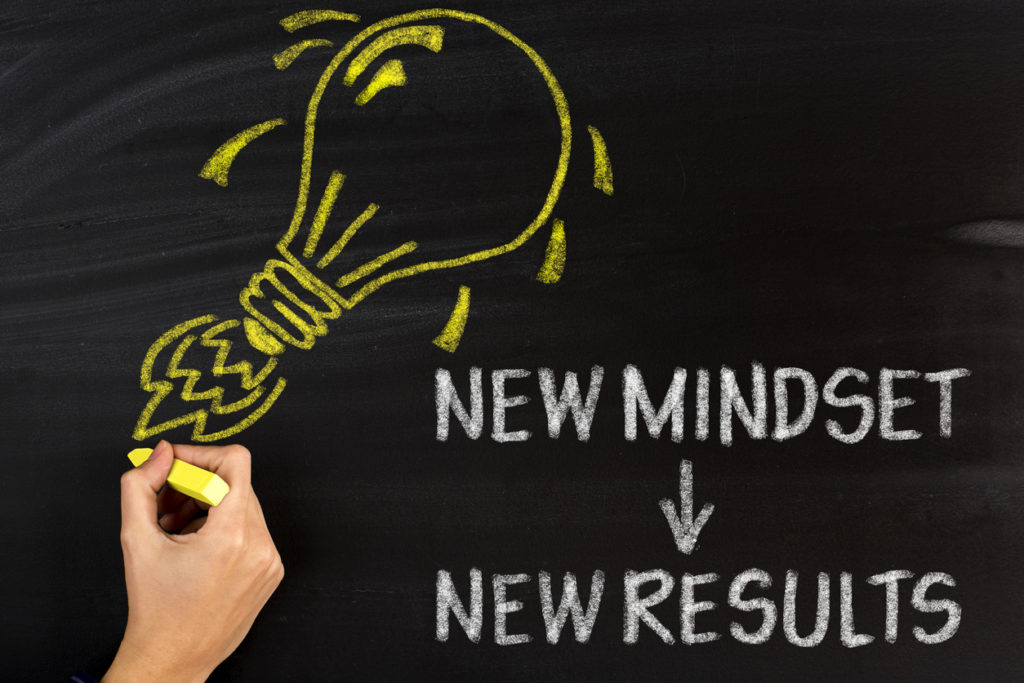Editor’s note: This guest post is written by three people with disabilities who work in scholarly communications – Simon Holt (Senior Acquisitions Editor at Elsevier) is visually impaired, Katy Alexander (Global Director for Marketing and Communications at Digital Science) has dyslexia, and Becky Degler (Digital Product Manager at Wiley) has chronic migraine. All are advocates for diversity and inclusion, and Simon is a member of the Society for Scholarly Publishing’s (SSP’s) Committee for Diversity, Equity, and Inclusion, and has recently joined The Scholarly Kitchen Cabinet, the group that oversees this blog.
Let’s get right down to it. This post is about increasing disability inclusion in the publishing industry. It’s about highlighting the qualities that people with disabilities bring to the workplace. It’s about showing that employing people with disabilities gives organizations a competitive advantage, rather than just being the ‘right thing to do’. It’s about ensuring that the next time a candidate with a disability enters an interview room, the hiring manager sees the value of their skills and experience for the organization, rather than seeing only potential limitations and shortcomings.

We live in a world where diversity is at the forefront of the news agenda. #MeToo, Pride, and Black Lives Matter have all made a substantial impact on public consciousness around the world. The publishing industry is also becoming more diverse. Globalization means we are increasingly working with a more diverse range of people – from different countries, in different time zones, with different cultures and ways of life. Social media is bringing us closer to our authors, readers, and customers, who hail from every walk of life. Since the dissemination and absorption of knowledge should not discriminate, we need to make sure we are including people from all backgrounds within our industry. The statistics suggest that, at present, this is not the case when it comes to disability.
We are three of the relatively small number of people currently working in the industry — or, indeed, the workforce as a whole — who class themselves as having a disability. While there are no statistics pertaining to the scholarly communications industry, in a recent survey by the UK Publishers Association, just 5.4% of respondents indicated that they have a disability, compared with 15% of the global population. We also know that people with disabilities of working age are 30% less likely to have a job than the rest of the population, both in the US and UK. The UN suggests that the picture is similar (or worse) in other parts of the world.
Why is this the case? Equality legislation on both sides of the Atlantic (see here and here) officially prevents individuals and organizations from discriminating against people with disabilities, and there’s no evidence that people with disabilities are less talented or hardworking than the rest of the population. The answer lies somewhere between culture and awareness:
Simon: There are barriers to entry within the publishing industry that disproportionally affect people with disabilities. I think this is the result of some people within the industry being unwilling to change established ways of working, perhaps partially because they are unaware that, in doing so, they are excluding people. For example, as a visually impaired person, I was once asked to do a proofreading test at an interview for a Development Editor job with no proofreading responsibilities (I was told it was needed to demonstrate ‘basic publishing skills’). There are certainly challenges that arise as a result of having a disability, but there are also lots of skills I have gained, too. The thing that I want to make clear is that I haven’t been successful *despite* my disability; I’m successful *because* of my disability, and the adaptability, resourcefulness and efficiency that has given me. These are all things that help me at work.
Becky: People with disabilities often face double discrimination: there are barriers to gaining and staying within employment, but also to earning potential and career progression. Once you have your foot in the door, unconscious bias in promotion decisions can prevent access to and representation across all levels of employment. For example, as a person with chronic migraine, I’ve encountered prosaic versions of ‘someone who is frequently sick cannot be as productive as a healthy ‘normal’ employee’; ‘if stress is a migraine trigger, then you’ll never be able to cope with the increased responsibilities’; and ‘if you can’t put in overtime then there’s a limit to your progression.’ These seem to derive from a cultural mindset that quantity and quality are the same thing, or that everyone with increased responsibilities will experience stress. Part of learning to live with a chronic illness is cultivating capabilities to adapt and overcome limitations on a daily basis. Managing stress effectively is what I do to survive. Progressive roles shouldn’t be off-limits because of my disability. In fact, the skills I’ve acquired through it can be differentiators that help me — and the company — thrive.
Katy: From my own experience and what I’ve observed of friends and colleagues with disabilities who have established themselves within the industry, I think there are several key traits that can support success. I’ve focused here on individuals though I do think there are important lessons for companies and the industry more widely. Companies and the industry should view these skills as valuable additions and not issues to be managed. Skill Number 1) Grit: growing up with dyslexia teaches perseverance; constant effort is required to overcome obstacles or challenges that are part of my everyday life. I will push and push myself to get through a problem, particularly if it is a problem that runs counter to my natural capabilities. Skill Number 2) Creativity: being dyslexic means thinking outside the box — we dyslexics just have to. For small and large organisations alike the ability to come at problems from a different perspective can support innovation. Skill Number 3) Relationships and Professional Development: I care very deeply about what motivates the people I work with and how I can help them succeed. In part, I’m sure this is because I didn’t experience this type of support myself. I wasn’t able to be open about my personal challenges for years, for fear of the people I work with thinking less of me for my disability. Now supporting how my team develops and figuring out creative ways to enable their growth are at the heart of my work. We need to create environments that are inclusive, not just because it is the right thing to do but because it unlocks huge potential for companies and the products they bring to market.
From a product standpoint, the publishing industry is doing a really good job at including people with disabilities. For example, since the 1920s, publishers have been releasing their books in alternative formats – traditionally books on tape, and in Braille and large print. The increasing popularity of eBooks during the past decade, and in audiobooks since the smartphone became ubiquitous, means that accessible books are now a commercial asset for publishing houses, rather than a charitable act. Beyond books, publishers now produce a large range of digital products – journals, databases, content platforms, websites, apps, etc. – that not only make scholarly work more accessible but are also actively changing how we advance research and generate knowledge. We need to take the same approach to our human resources in terms of the recruitment, retention, and development of people with disabilities in our workforce.
That means changing both our attitude and our policies. By ‘attitude’, we mean that we need to stop focusing on the ‘dis’ in disability – the disadvantages, disincentives to employ, and wholesale disengagement with a substantial section of society – and focus more on the ‘ability’. If you have a disability, you have to think, and sometimes act, differently. You face challenges on a daily basis that you need to work around – whether that’s navigating a conference hall without being able to read any name badges or signs, taking longer to pre-read and process materials (making it impossible to contribute in meetings where you have been given a report on the same day), or flagging a migraine-inducing perfume as a medical boundary rather than a personal preference without damaging relationships. You also frequently have to ask people for help, which often involves initiating conversations with strangers. Businesses need staff with these sorts of problem-solving and relationship-building skills. There is also evidence to suggest that people with disabilities are likely to remain at an organization longer, possibly because, once you are set up with everything you need, and you have explained what adjustments you need to everybody else, and proven to them that you can still do the job….it’s quite exhausting to have to do that all over again, on a regular basis. From a market point of view, the message is clear: invest in a person with a disability, and they will almost certainly repay that investment many times over.
It is outside the scope of this piece to mandate specific actions for organizations to take. However, there are national programs, including the UK government’s Disability Confident scheme, which companies can sign up to free of charge, for companies who would like to commit to an external standard of excellence in this area. There are also a multitude of country-specific resources available online, including this very helpful webpage from the US Equal Employment Opportunity Commission.
So, our message is that disability inclusion is not about having lots of money to invest, and it is not an act of charity. It is about engaging with a sector of society who are currently underrepresented in our workforce, recognizing the skills that we can offer your organization – skills that we have because of, not despite, the fact that we have a disability – and it’s about putting a process in place to allow us to use those skills to deliver the best value for your company. Most of all, it’s about solving problems together to find creative solutions that benefit everybody – as people with disabilities, that is simply what we do.
We welcome your comments here or, if you’d prefer to contact us offline, please email Katy at k.alexander@digital-science.com
Discussion
10 Thoughts on "Guest Post — The Problem Solvers You Don’t Know About Yet: Valuing Disability in the Publishing Industry"
Problem solving is one of the most sought after skills for employees and people with disabilities don’t just have this skill, they live it. Bravo to this article for showing the abilities of those with disabilities.
Thank you all for sharing your perspectives and helping to bring to light some great reasons why employers should be considering and hiring candidates with disabilities.
Thank you very much indeed for sharing your experiences and thoughts. This post motivated me to review my understanding of the UK context (see https://www.gov.uk/government/publications/employing-disabled-people-and-people-with-health-conditions/employing-disabled-people-and-people-with-health-conditions). It provided a timely reminder that there are a huge array of disabilities and health issues that may present challenges, and that these can vary over a person’s lifetime: autism, attention deficit disorder, dyslexia, epilepsy, hearing impairment, mental health conditions, physical challenges including those that are age-related and impact older workers, and visual impairment.
There is a great deal of advice and support available for employers who wish to be really inclusive. It can be very stressful to have to ask specially for support, even if it could be easily provided and might willingly be given. Better to signal to everyone in an organisation that help is available to all who need it, and to have systems in place so this can be arranged without drama.
Finally, we all need to be a bit more mindful of the challenges others may be facing (whether or not they seem to be struggling). As someone with a hearing impairment, could I especially encourage you to use that conference microphone each and every time please… without being asked and even if you believe your voice will carry. For my part, I’m trying to be really diligent to include image descriptions in documents that include charts, graphs, and pictures. It’s always useful to learn about other steps I can take to make things easier for others with disabilities or health issues!
I greatly appreciate this post and applaud its authors for speaking out and providing great points of education for those of us who work in the scholarly publishing/communications industry. The disability community is perhaps the only minority community that all humans are likely to join at some point in their lives if they live long enough. I heard this point frequently from a former colleague who teaches disability studies and history, and it really is true. So if you think that these issues don’t apply to you or you don’t need to think about them, think again.
As someone who was recently diagnosed with a chronic illness that is not yet well known or understood (Lymphedema), I appreciate this encouraging and supportive post very much. Figuring out daily management strategies provides perspective.
Thank you for posting this blog bringing real life to the forefront and seeing our industry wanting to empower everyone. As I have Bipolar Disorder, I am particularly interested in mental health and how to increase support for individuals to really succeed in the workplace. I’m now working in this area to help create a better way to help me and others thrive!
Great to see such a lovely piece about the benefits that disability can bring to the publishing industry! At Springer Nature we’ve developed a Disabled Employee Network (DEN) which focuses on supporting employees, providing a voice for advocacy, and advising on issues of disability and accessibility (both within the organisation and within the products we create). We’ve all been involved in setting up the DEN and it’s a been a really lovely experience getting to know people from all over the company who come together with a joint purpose. One of the key areas we’ve discussed is that a group like this isn’t just for “disabled” people – there are no labels or badges here. If you want to disclose a disability, you can – but you don’t have to. Or perhaps you have a friend or family member or colleague with a disability, or perhaps you just want to learn more about working in an inclusive environment. It’s a safe space to share ideas, feelings, frustrations, achievements, and successes. I hope that over time we can demonstrate that we bring a lot more to the publishing community!
I appreciate your adding this dimension to the conversation. In the last two weeks I encountered two academics who were each beset by a rare ailment that affected their ability to function and consume information. They have recovered now, but for the year that each was dealing with the impact, the accommodation for disability would have been important to them, especially with medical content. So the percent increases when we consider those of working age temporarily confronting similar issues.
I agree with the positive comments by others, but I find this statement arguable: “From a product standpoint, the publishing industry is doing a really good job at including people with disabilities.”
The majority of accessible format books in the U.S. have been produced by government and non-profit agencies, not publishers. Students with disabilities must request (and wait for) their books from disability services because they can’t buy accessible versions.
Internationally, the Marrakesh Treaty is promoted as the solution to the “book famine” for people with disabilities because it removes the need to obtain copyright permission to create accessible books.
While the publishing industry has mostly cooperated with and supported the production of accessible books, it has not been a leader in embracing people with disabilities as customers.
Hopefully this will change, and certainly greater diversity in publisher’s staff will help.
Thanks very much Robert – this is an enlightening and thought provoking comment that I hadn’t thought about before. I guess I was more thinking more about the increasing availability of books in digital formats (e, audio etc) that can be made accessible, but would also acknowledge that this accessibility a by-product, rather than the primary reason for e-migration. I would say, however, that the adoption of accessible digital formats (rather than inaccessible one) does mark progress in this respect. So, perhaps ‘great job’ is pushing it a bit, but ‘decent job’ is still fair, I think.



